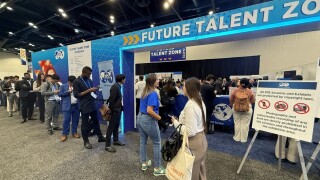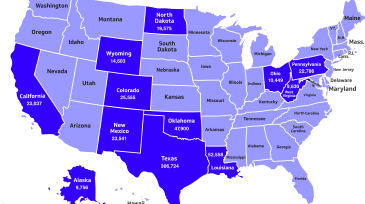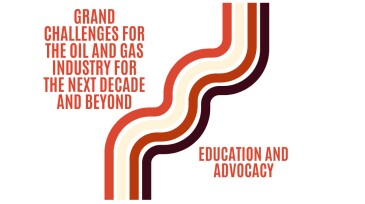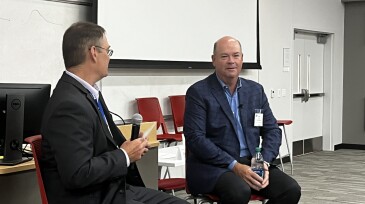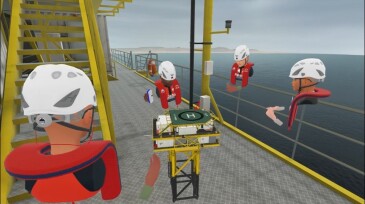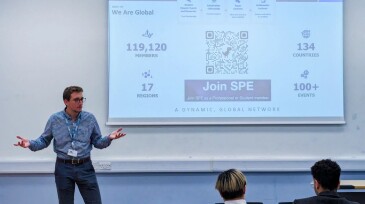Human resources
Major increases in hydrocarbon production require both incremental and revolutionary technologies, industry leaders said during the SPE Hydraulic Fracturing Technology Conference.
The Career Advancement Network held its 16th semiannual Energy Professionals Hiring Event at SPE’s 2025 Annual Technical Conference and Exhibition, allowing participants to connect with employers, explore opportunities, and seek information about job opportunities in a rapidly evolving industry.
This paper explores the evolving role of the digital petroleum engineer, examines the core technologies they use, assesses the challenges they face, and projects future industry trends.
-
Texas, Louisiana, Oklahoma, Colorado, and New Mexico round out the top five states.
-
The energy industry faces a shortage of skilled professionals, and high salaries aren’t enough to attract new talent. We need to show how careers in this field offer meaning and stability, with transferable skills across energy sectors.
-
Industry professionals can use the 20/60/20 approach to recruit those most likely to be won over to oil and gas.
-
The industry is balancing brains and bots as it squeezes out barrels of oil production.
-
Cost concerns temper public appetite for clean energy while companies struggle to find investors for projects.
-
ConocoPhillips’ CEO Ryan Lance sees a future for petroleum engineers as the energy mix expands.
-
VR provides an immersive and cost-effective approach to essential oilfield training.
-
YP and petroleum engineer Natan Battisti spoke with The Way Ahead about the role SPE's mentoring program played in his career and his motivation for helping others as a mentor.
-
SPE President Terry Palisch is joined by Susan Howes, president of Subsurface Consultants and Associates, to discuss the importance of soft skills for petroleum engineering.
-
SPE President Terry Palisch is joined by Jennifer Miskimins, department head of petroleum engineering at the Colorado School of Mines, to discuss the academic aspect of petroleum engineering and its future.


